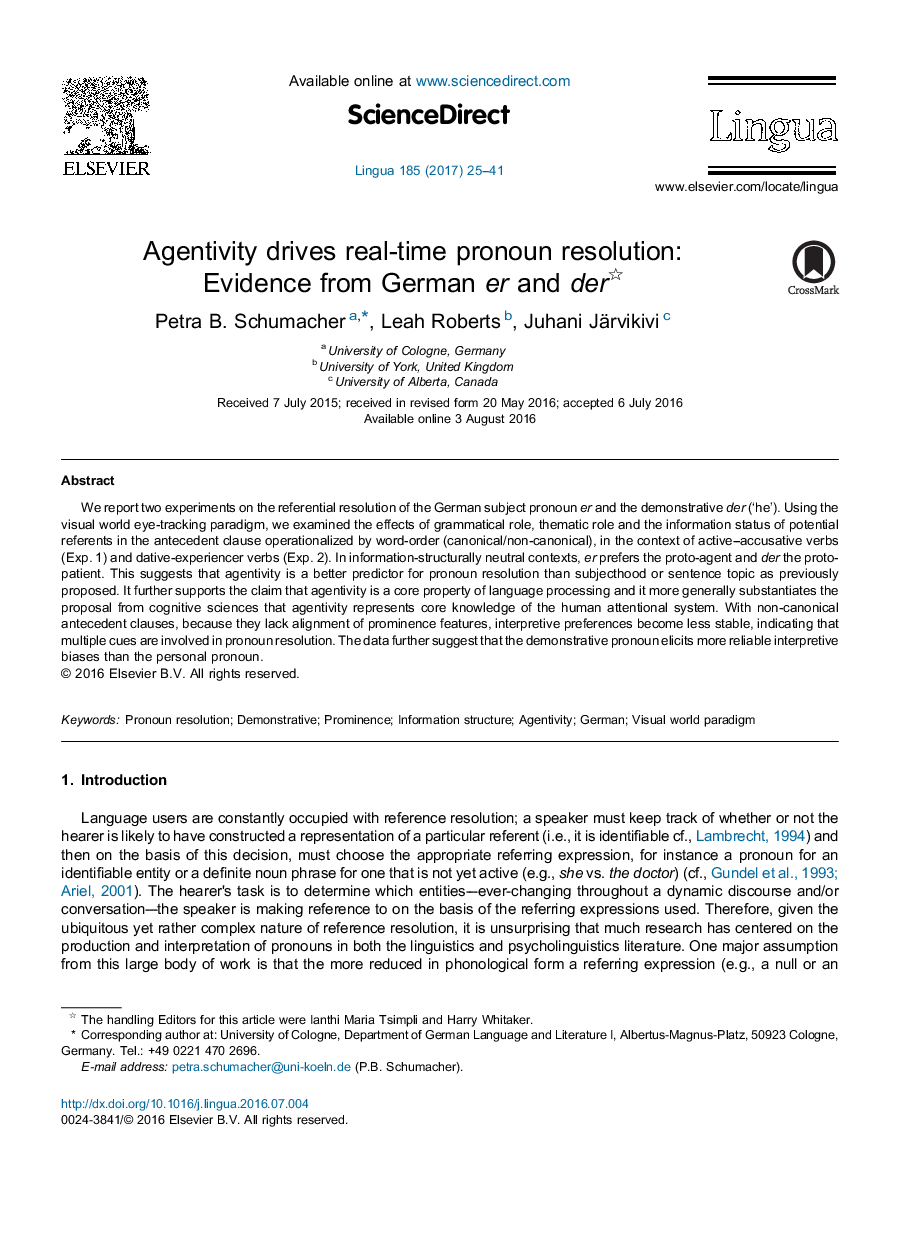| کد مقاله | کد نشریه | سال انتشار | مقاله انگلیسی | نسخه تمام متن |
|---|---|---|---|---|
| 5043063 | 1475030 | 2017 | 17 صفحه PDF | دانلود رایگان |

- We investigate resolution of personal and demonstrative pronouns in German.
- Visual world eye tracking data reveal discrete resolution preferences.
- In unmarked antecedent clauses, agentivity is a better predictor than subjecthood.
- In marked clauses, conflicting prominence scales hamper resolution preferences.
- Contra the single-factor account and in favor of the multi-factor account.
We report two experiments on the referential resolution of the German subject pronoun er and the demonstrative der ('he'). Using the visual world eye-tracking paradigm, we examined the effects of grammatical role, thematic role and the information status of potential referents in the antecedent clause operationalized by word-order (canonical/non-canonical), in the context of active-accusative verbs (Exp. 1) and dative-experiencer verbs (Exp. 2). In information-structurally neutral contexts, er prefers the proto-agent and der the proto-patient. This suggests that agentivity is a better predictor for pronoun resolution than subjecthood or sentence topic as previously proposed. It further supports the claim that agentivity is a core property of language processing and it more generally substantiates the proposal from cognitive sciences that agentivity represents core knowledge of the human attentional system. With non-canonical antecedent clauses, because they lack alignment of prominence features, interpretive preferences become less stable, indicating that multiple cues are involved in pronoun resolution. The data further suggest that the demonstrative pronoun elicits more reliable interpretive biases than the personal pronoun.
Journal: Lingua - Volume 185, January 2017, Pages 25-41